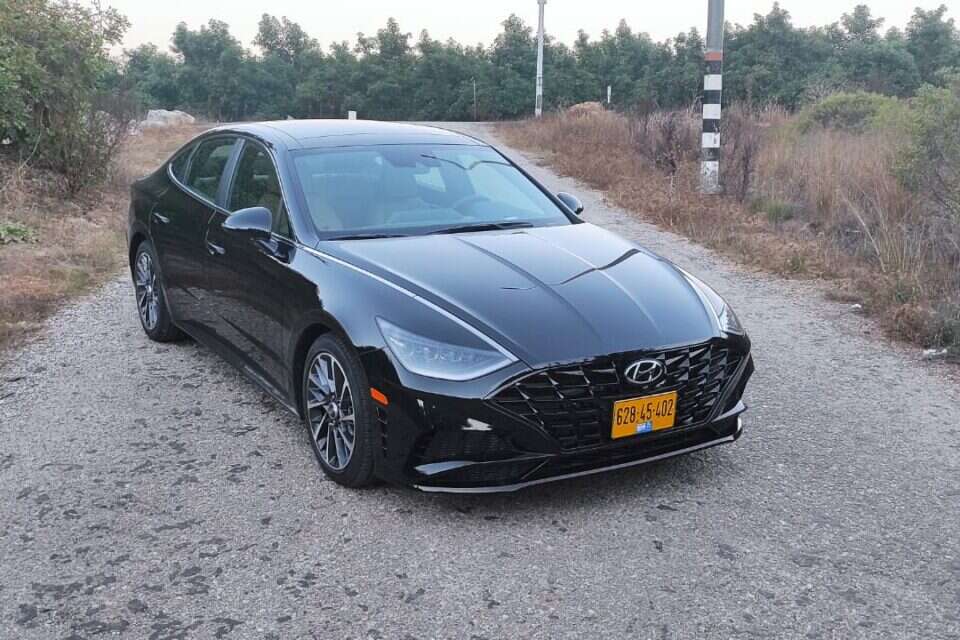The rising price of the Hyundai Sonata hybrid, obliges the local importer to bring a cheaper version here (by five to ten percent), one that will maintain the relevance of the model among the Israeli public.
This is how our turbo version of the Sonata begins.
But as we have discovered throughout the test days, cheaper does not have to be less good.
Under the hood
The Hyundai Sonata Turbo uses a supercharged 1.6-liter engine mated to an eight-speed automatic transmission.
The engine's output is quite handsome, with 180 hp it is weaker than the hybrid version, but there are two elements that make its work easier: the overall weight of the turbo version is lower and there is more gear ratio here in the gearbox.
More from Overdrive >>>
Beyond these, there are no significant differences between the turbo and hybrid.
The comfort armature list is comprehensive and quite similar.
It's the same up-to-date Hyundai exterior design, the same cabin.
The list of safety equipment is also quite long here as well and those who insist on differentiating between the two will be able to do so according to slight bumper differences in the front and rear.
There is also the option to drive the vehicle to and from a crowded parking lot.
Using the remote without sitting in the car.
Nice.
on the road
Combining the engine and gearbox in the Sonata Turbo turns out to be quite efficient.
The absolute numbers tell of an advantage in acceleration over the hybrid option but life is not acceleration from zero to one hundred.
In any type of use, whether it's a slight urban acceleration or going for a mountain detour, the Sonata Turbo produces superior and available performance.
The feeling is meaty, thick and relatively fast.
The turbo version wears tires in more sporty sizes, with a lower cut and wide soles.
These give high levels of grip here, the adult behavior comes out rewarding from those.
Do not expect here all kinds of rudder-chassis pleasures, only for precise, efficient and very efficient speed.
Beyond that, the Sonata, even in this version is very pleasant.
The cabin is spacious, comfortable and quiet most of the time.
Successful design and even more successful choice of shades in the test vehicle, certainly produce a pleasant and mind-expanding place.
The ride comfort is very good, despite the wide tires.
Fuel consumption throughout the test days was 11.8 km effort per liter of fuel.
Here, is the main difference compared to the hybrid version.
The Bottom Line
At the end of the day the turbo version gives more enjoyment and motivation to the person sitting behind the wheel.
Performance is available and superior, grip levels are higher, and you can definitely hurry here.
The differences in real-time fuel consumption show preference for the hybrid version but not one that justifies the price difference between the two versions.
So the cheaper version of the Sonata, with its less sophisticated propulsion system, is also the one we choose.
Hyundai Sonata Turbo
Engine:
Turbo, 1,598 cc
Power:
180 hp at 5,500 rpm
Torque:
27 kg from 1,500 rpm
Gear:
Out, 8 Hill
Wheelbase:
284 cm
Weight:
1,520 kg
Fuel consumption (test):
11.8 km / l
From 0 to 100 km / h:
8.6 s
Maximum speed:
210 km / h
Price:
NIS 188,000
Pros:
Comfort, performance, armature
Cons:
Drinks more fuel than her sister
Bottom line:
a better option
Were we wrong?
Fixed!
If you found an error in the article, we'll be happy for you to share it with us

